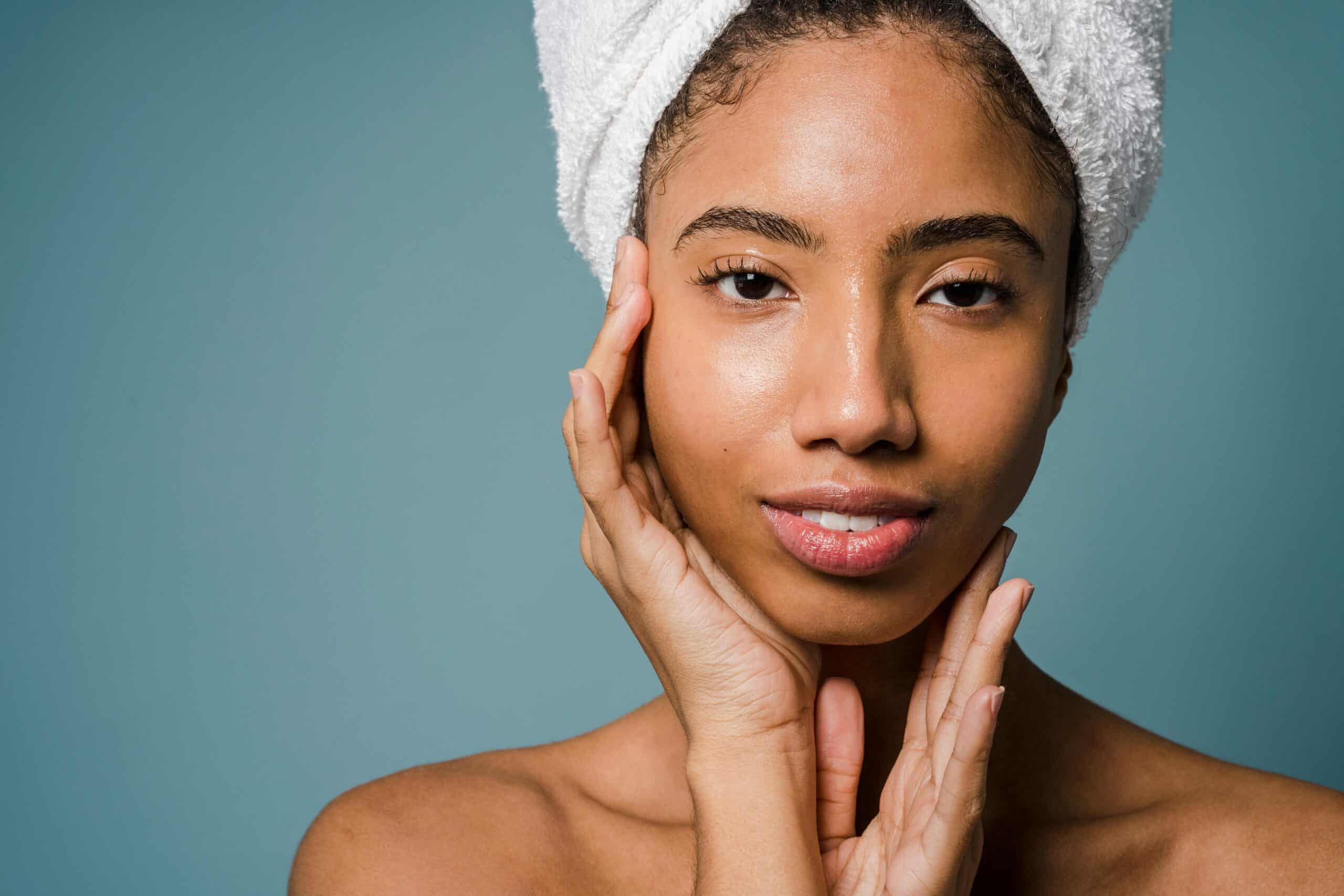
In recent years, the discourse surrounding skin health and beauty has shifted significantly. While many individuals still search for the right topical treatments to address skin concerns, evidence increasingly points to an unconventional yet powerful ally: gut health.
The intricate relationship between the gut and skin, known as the gut-skin axis, plays a central role in the clarity and vitality of your complexion. Understanding this connection and adopting a nutrition-driven approach can make a significant difference for those seeking vibrant, healthy skin.
At last, help is on the way!
Understanding the Gut-Skin Connection

What Is the Gut Microbiome?
Think of your gut microbiome as a bustling city of trillions of bacteria, all working together to keep your digestion, immunity, and inflammation in check. These microbes help break down food, absorb nutrients, and even produce essential vitamins.
A well-balanced gut microbiome strengthens your immune system, keeping harmful invaders at bay, while also regulating inflammation—an essential factor in maintaining clear, healthy skin. But when this delicate gut balance is disrupted, it can lead to digestive issues, weakened immunity, and skin flare-ups.
Discover how an all-natural greens powder can help keep your gut microbiome healthy!
The Gut-Skin Axis: What You Need to Know
The gut-skin axis is a fascinating connection between your digestive system and your skin health, almost like they’re in a secret relationship.
When your gut is happy and balanced, it helps to keep your skin radiant and clear. But when things go awry in your gut—whether it’s due to a diet high in processed foods, a lack of fiber, or even too much stress—the effects can show up on your skin, often making it a major indicator of internal chaos.
What Poor Gut Health Could Mean for Your Skin
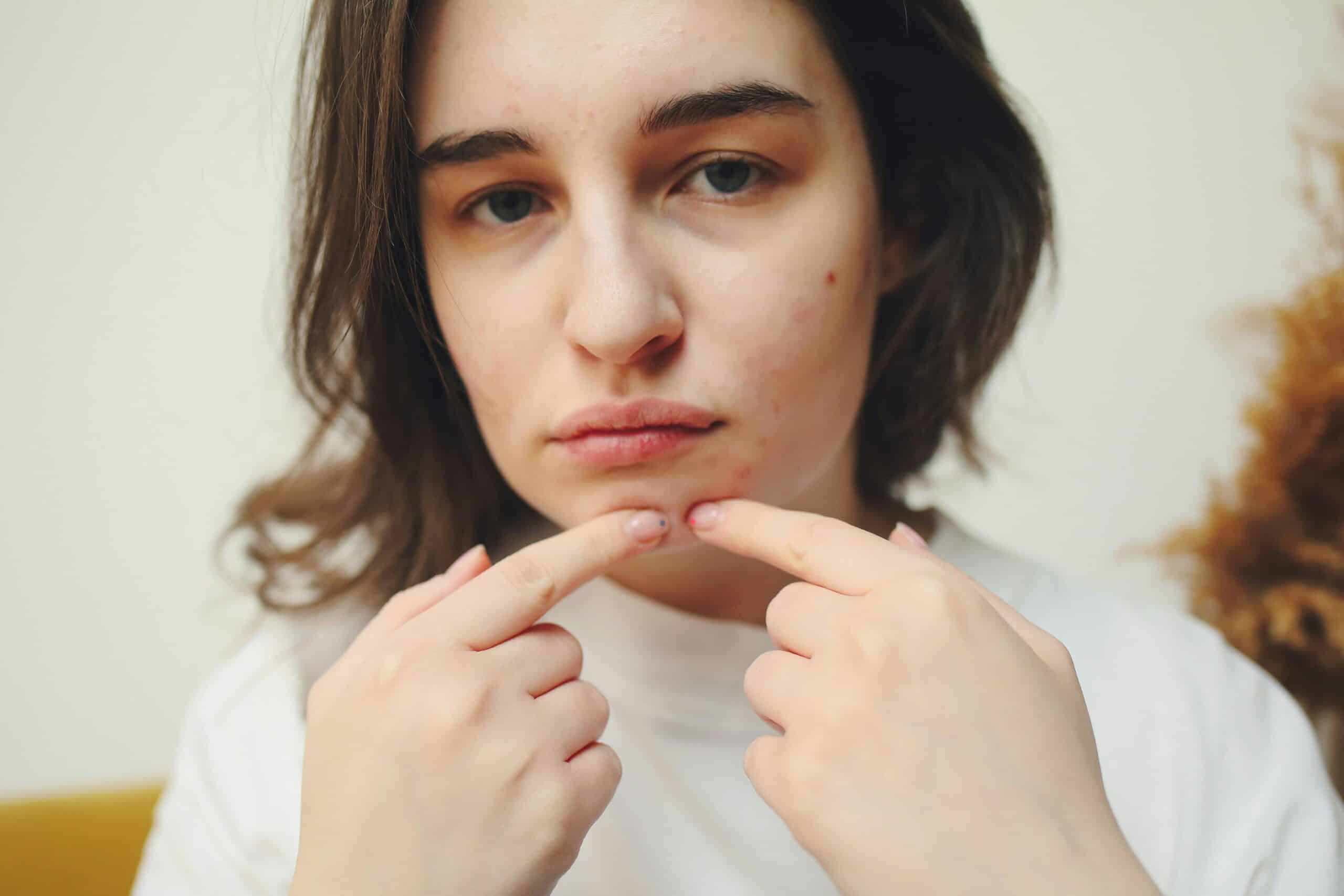
Your gut health and skin are deeply connected—when the gut is inflamed, the skin often follows. Imbalances in gut bacteria, gut inflammation, and common dietary and lifestyle disruptors can contribute to acne, eczema, and psoriasis.
Gut Inflammation and Skin Inflammation
An unhealthy gut can lead to a condition known as leaky gut, where the intestinal lining becomes compromised, allowing toxins and undigested particles to enter the bloodstream. This triggers an immune response and systemic inflammation, which can manifest as skin breakouts, redness, and irritation. Chronic gut inflammation is often linked to worsening symptoms of acne, eczema, and psoriasis.
The Role of Gut Bacteria in Acne, Eczema, and Psoriasis
Your gut microbiome plays a crucial role in skin health. When beneficial bacteria are outnumbered by harmful microbes, it can disrupt the body’s ability to regulate inflammation, contributing to inflammatory skin conditions.
Studies suggest that gut dysbiosis (an imbalance of gut microorganisms) can lead to increased sebum production, immune system dysfunction, and heightened skin sensitivity—all factors that exacerbate acne, eczema, rosacea, and psoriasis.
Acne
Research shows that chronic inflammation often linked to gut health can exacerbate acne. An imbalance in gut bacteria can lead to the overproduction of sebum and the development of inflammation around hair follicles, contributing to breakouts.
Eczema
Eczema, or atopic dermatitis, has been correlated with an imbalanced gut microbiome. When the gut lining is compromised (a condition often referred to as "leaky gut"), larger molecules can enter the bloodstream, triggering allergic reactions and skin inflammation.
Rosacea
Emerging studies suggest a potential link between gastrointestinal issues, such as small intestinal bacterial overgrowth (SIBO), and rosacea flare-ups. An unhealthy gut may contribute to inflammation that impacts the skin’s appearance.
Psoriasis
Chronic inflammatory conditions such as psoriasis have been associated with gut health. The dysregulation of the immune system rooted in poor gut health can exacerbate such skin conditions.
Common Gut Health Disruptors
Several lifestyle and dietary factors can harm gut health, fueling inflammation and skin issues.
When harmful bacteria overpopulate, it affects nutrient absorption, impacting vitamins that support skin elasticity and glow. Additionally, the gut-brain connection means stress can worsen digestive issues, creating a cycle that affects both your gut and skin.
Here are some common habits that can contribute to poor gut health:
Poor Diet Choices
One of the biggest culprits of gut issues is a diet that's low in fiber and high in processed foods.
Think about it—if your diet is loaded with sugary snacks, fast food, and refined carbs, you’re not giving your gut the nutrition it craves. High sugar intake can lead to an overgrowth of harmful bacteria, and the lack of fiber means there’s not enough for the good bacteria to thrive on.
Discover the best vegan superfoods that you can easily add to your diet to jumpstart gut health!
High Stress Levels
Feeling stressed? Join the club!
Stress can seriously compromise digestion and lead to issues like bloating, constipation, and diarrhea. When you’re stressed, your body can go into fight-or-flight mode, and digestion often gets put on the back burner. Developing healthy coping mechanisms, like yoga or meditation, can help keep those gut issues at bay.
Lack of Sleep
Let’s be honest—many of us prioritize everything over sleep. But a lack of quality sleep can wreak havoc on your gut health.
Sleep supports overall bodily functions, including digestion. When you miss out on restorative sleep, it can lead to increased inflammation and even exacerbate gut issues. Try creating a calming bedtime routine to help.
Inadequate Hydration
Water. Yes, I’m sure you drink plenty… but are you drinking enough?
Dehydration can affect the mucosal lining of the intestines and impair digestion. It can also make it difficult for fiber to move through your digestive system, leading to constipation. Aim for at least 8 glasses a day
Antibiotic Overuse
While antibiotics have their place in treating infections, overusing them can disturb the balance of bacteria in your gut. They tend to wipe out both harmful and beneficial bacteria, leading to dysbiosis.
It’s important to only use them when necessary and to follow your healthcare provider's guidance.
Sedentary Lifestyle
You know the old saying, “movement is medicine”?
Well, it’s true! Lack of physical activity can slow down digestion and contribute to bloating and discomfort. Regular exercise helps promote gut motility and supports a healthy microbiome. So whether you’re hitting the gym or just taking a daily walk, getting moving is essential for your gut.
The Importance of Pre- and Probiotics
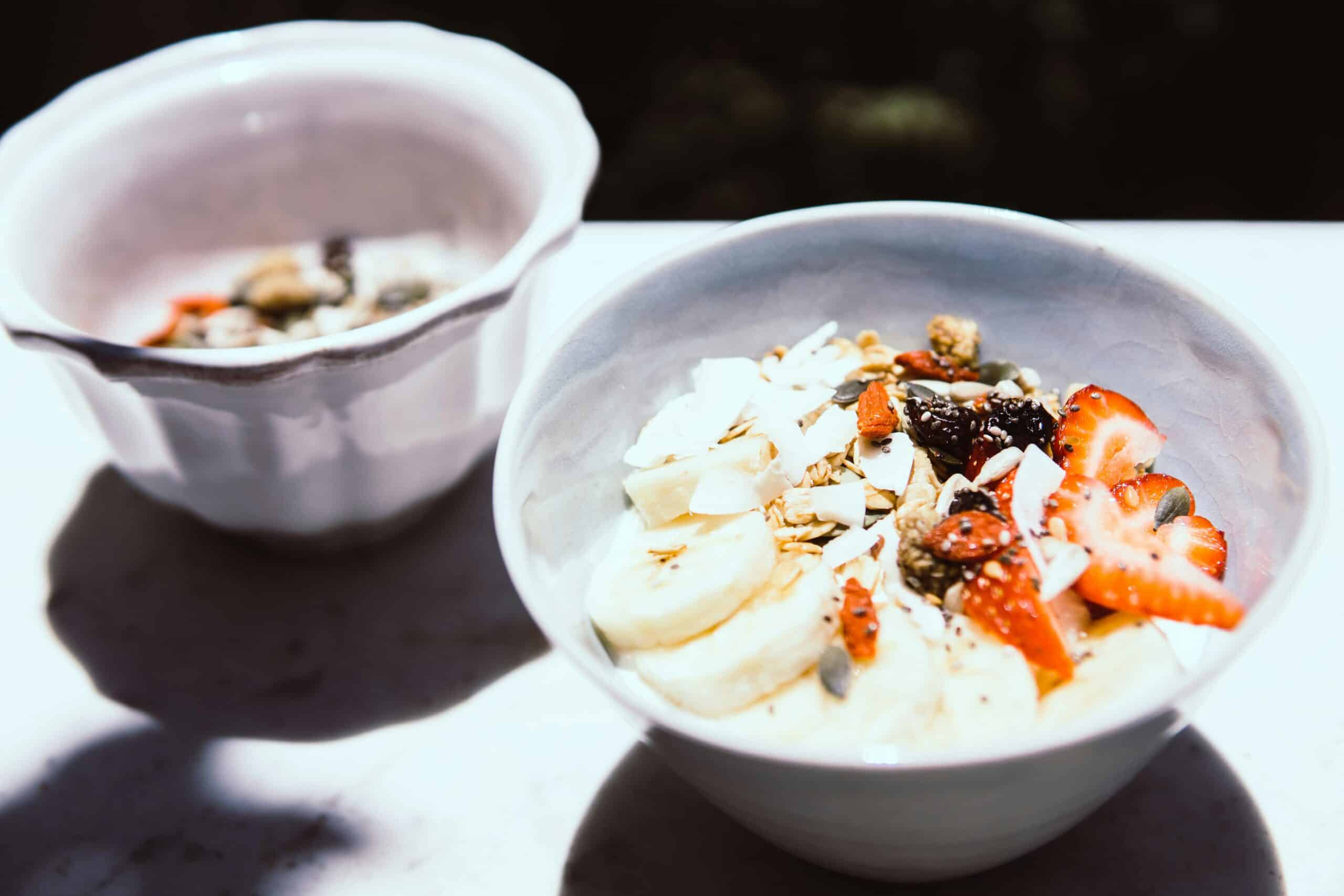
Focusing on gut health through nutrition can have a remarkable impact on skin clarity and appearance. Let’s dive in and break down the difference between prebiotic and probiotic foods—two terms that often get thrown around together, but they actually serve pretty distinct purposes.
What Are Probiotics?
Probiotics are the actual live bacteria that are beneficial for your gut health. When you consume probiotics, you’re introducing these good bacteria directly into your digestive system. The idea is that they can help balance your gut flora, fight off harmful bacteria, and support overall gut function.
Some popular probiotic foods include:
- Yogurt: One of the most well-known sources of probiotics—just be sure to choose a variety that says “live and active cultures” on the label. There are plenty of yogurt options available, including vegan-friendly brands. So finding one that fits your lifestyle and taste preferences should be no problem!
- Kefir: This fermented dairy product is like a drinkable yogurt packed with even more strains of probiotics. Vegan kefir products are becoming more popular and widely available.
- Kimchi and Sauerkraut: Fermented vegetables that boost gut health with probiotics and loads of flavor.
- Miso: A fermented soybean paste that’s great in soups and dressings.
- Tempeh: Another soy-based product, it's fermented and can be used as a meat substitute in various dishes.
What Are Prebiotics?
Prebiotics are essentially the food for the good bacteria (or probiotics) in your gut. Think of them as the fertilizer that helps your gut garden thrive. These are mostly types of fiber that your body can’t digest, but your gut bacteria can munch on them, helping them flourish. When you consume prebiotic foods, you’re essentially creating a super cozy environment for those beneficial bacteria to grow.
Some common prebiotic foods include:
- Garlic: It’s full of inulin, a type of prebiotic fiber.
- Onions & Leeks: Both of these add flavor to your meals and help your good bacteria thrive.
- Bananas: They’re a great snack that also contains resistant starch, especially when they’re a bit green.
- Oats and Barley: Whole grains like these are packed with beta-glucans, another form of prebiotic fiber.
- Chicory Root: Often found in coffee substitutes, it’s super high in inulin.
Overall, incorporating prebiotics into your diet helps support a healthy gut microbiome, which can have a ripple effect on your overall health, skin, digestion, and even mood.
The Harmony Between Prebiotics and Probiotics
If you consume prebiotic foods, they help your existing beneficial bacteria thrive, while probiotic foods can help replenish your gut's good bacteria levels. Many folks find that combining the two—like having yogurt (probiotic) topped with bananas (prebiotic) or enjoying a serving of kimchi with some oats—creates an incredibly nourishing environment for your gut.
Tip: If you’re having a hard time getting all the nutrients you need, a high-quality greens powder can be the extra boost you need to supplement your health journey.
Why You Need Both to Sustain Gut and Skin Health
Incorporating both prebiotics and probiotics into your diet can significantly improve your digestive health and overall wellness.
While probiotics can help reset and maintain your gut flora, prebiotics ensure those good bacteria have what they need to survive and flourish.
Think of it as tending to a garden: you need both the seeds (probiotics) and the right soil (prebiotics) for the plants to thrive. The benefits? A well-balanced gut and flourishing skin.
Best Foods for Clear Skin

Incorporating anti-inflammatory foods into your diet can significantly improve both gut and skin health.
- Berries, such as strawberries, are rich in antioxidants like vitamin C, which helps combat oxidative stress that can prematurely age the skin.
- Fatty fish like salmon and mackerel are packed with omega-3 fatty acids, which reduce inflammation, support skin hydration, and enhance the skin's barrier function. For vegans, add chia seeds, walnuts, hemp seed, and flaxseed to incorporate omega-3’s.
- Leafy greens like kale and spinach are excellent sources of vitamin A and other vital nutrients that promote skin repair and reduce inflammation.
Foods to Avoid for Gut & Skin Health
Some foods can disrupt the gut microbiome and trigger skin issues more than others. Dairy, refined sugar, and alcohol are common culprits.
- Dairy products can promote inflammation, which may exacerbate conditions like acne.
- Refined sugars can lead to insulin spikes, contributing to breakouts and other skin issues.
- Alcohol impairs digestion, disrupts gut health, and dehydrates the skin, making it more prone to irritation, inflammation, and premature aging.
Clean Food Options
Adopting cleaner eating habits can significantly benefit your gut and skin health. Here are some options for building a more nourishing diet:
Fruits and Vegetables
These are packed with vitamins, minerals, antioxidants, and fiber—essential nutrients for maintaining a healthy gut and skin. Antioxidants like vitamin C, found in citrus fruits and berries, help combat oxidative stress and protect the skin. Leafy greens like kale and spinach provide vitamin A, which is important for skin repair and maintenance.
Fermented Foods
Rich in probiotics, fermented foods help restore and maintain a balanced gut microbiome, improving digestion and reducing inflammation—key factors in supporting clear skin. Foods like yogurt (unsweetened with live cultures), kefir, sauerkraut, and kimchi bolster the immune system and promote skin health. Vegan options available!
Whole Grains
Whole grains are an excellent source of fiber, which serves as food for beneficial gut bacteria. They also help regulate blood sugar levels, preventing insulin spikes that can lead to acne and other skin problems. Quinoa, brown rice, oats, and barley are great additions to any diet focused on gut and skin health.
Nuts and Seeds
These are rich in healthy fats, vitamins, and minerals that support skin health. For example, almonds are high in vitamin E, an antioxidant that helps protect the skin from oxidative damage, while chia seeds are full of omega-3 fatty acids, known for their anti-inflammatory properties.
Fatty Fish
Fatty fish are one of the best sources of omega-3 fatty acids, which are essential for reducing inflammation, supporting the skin barrier, and enhancing hydration. These healthy fats help keep the skin supple and radiant. Replace with various seeds, nuts, and oils for vegans!
Legumes
Legumes like lentils, chickpeas, black beans, and peas are packed with fiber, protein, and essential nutrients that support skin health. They help stabilize blood sugar levels, preventing the spikes that can contribute to breakouts.
By choosing these cleaner, anti-inflammatory foods, you can nurture your gut microbiome and enhance the health and appearance of your skin.
Real Changes, Real Results for Gut Health

Gut health is crucial not only for digestion but also for maintaining healthy, glowing skin. Implementing specific lifestyle habits can have a significant impact on both, and when paired with the right supplements, can lead to real changes and real results. Here's how you can improve your gut and skin health through simple, effective habits.
Reduce Stress
When you're stressed, your body releases cortisol, a hormone that can disrupt the gut's microbiome, leading to imbalances. This imbalance may cause digestive issues and skin conditions like breakouts. Chronic stress can also exacerbate inflammation in the body, further impacting skin health.
While managing stress is always easier said than done, it is vitally important for gut and skin health, but also your general well-being. Find a hobby or activity that works best for you to manage stress and make it a regular part of your schedule. Self-care is not selfish!
Hydration & Skin Health
Proper hydration is essential for maintaining skin health and supporting digestion.
Drinking plenty of water throughout the day helps keep the skin hydrated and flushes out toxins, which is vital for a healthy complexion. Herbal teas, such as chamomile or peppermint, can soothe the gut and improve digestion while also providing antioxidant benefits for the skin. Electrolyte-rich drinks can help maintain fluid balance, especially after physical activity. Just be careful to avoid overly sugary sports drinks that may be counterproductive to gut health.
Supplements & Probiotics
Incorporating supplements into your daily routine can provide an extra boost to support both gut and skin health, complementing a healthy lifestyle. Here’s a breakdown of key supplements to consider:
- Probiotics: A high-quality probiotic supplement, particularly those with multiple strains and billions of CFUs (colony-forming units), is essential for maintaining a balanced gut microbiome. These probiotics improve digestion, reduce inflammation, and support clear, glowing skin.
- Prebiotic Fiber: Prebiotic fiber is important for feeding the beneficial bacteria in your gut. If you’re not getting enough fiber from your diet, a prebiotic supplement can help nourish the good bacteria and promote healthy gut function.
- Digestive Enzymes: These supplements assist in breaking down food and improving nutrient absorption. They are especially beneficial if you struggle with digestion or feel you’re not getting the most out of your meals.
- Omega-3 Fatty Acids: Omega-3s, found in fish oil and other sources, help reduce inflammation in both the gut and skin. This can create a healthier environment for both systems, promoting better digestion and a clearer complexion.
- L-Glutamine: L-glutamine supports the gut lining, aiding in overall gut function. It’s particularly beneficial for individuals dealing with leaky gut or digestive discomfort.
- Greens Powders: Greens powders, like Live It Up Super Greens, are formulated to fill nutritional gaps, support digestion, and promote overall well-being. These powders are particularly helpful on days when it’s hard to consume enough fruits and vegetables, providing a comprehensive boost to gut health and skin vitality.
By integrating these supplements into your daily routine, you can improve both your gut and skin health, leading to real changes and results.
Putting It All Together: A 3-Step Plan for a Happier, Healthier Gut

Step 1: Revamp Your Diet
Focus on whole, unprocessed foods like fruits, veggies, whole grains, lean proteins, and healthy fats to nourish your gut:
- Fruits & Veggies: Aim for 5+ servings daily (e.g., berries, leafy greens).
- Whole Grains: Swap white rice and bread for fiber-rich options like quinoa.
- Prebiotics: Include garlic, onions, leeks, bananas, and oats to feed gut bacteria.
- Probiotics: Add fermented foods like yogurt, kimchi, and miso for beneficial bacteria. Snack smart with yogurt or kimchi for an easy probiotic boost.
Step 2: Enhance Your Lifestyle
Incorporate gut-healthy habits into daily life:
- Stress Management: Practice mindfulness, yoga, or nature walks to reduce stress.
- Hydration: Drink 8+ glasses of water daily for digestion.
- Exercise: Aim for 150 minutes of moderate activity each week.
- Sleep: Set a calming bedtime routine to improve sleep quality.
Step 3: Consider Supplements
Supplements can enhance gut health when needed:
- Probiotics: Choose a high-quality, multi-strain probiotic.
- Prebiotic Fiber: Consider fiber supplements like inulin or psyllium husk.
- Omega-3s: Add fish oil or plant-based omega-3s to reduce inflammation.
- Greens Powders: Explore popular options like AG1, Bloom, and Live It Up Super Greens. Each can offer a convenient way to support gut health while also providing essential vitamins, minerals, and antioxidants. These blends can help fill nutritional gaps and promote digestion.
Last Words About the Gut-Skin Connection
In this deep dive into gut health and its incredible link to skin health, we’ve uncovered the power of the gut-skin axis, the consequences of neglecting gut wellness, and how what we eat can transform the way our skin looks and feels.
From fueling your body with prebiotic and probiotic-rich foods to making simple lifestyle changes and considering supplements, we've explored key strategies to boost gut health. Keep in mind—nurturing your gut can unlock the radiant, glowing skin you've always dreamed of, revealing your beauty from the inside out!
Take that first step toward glowing skin, and let your gut be the secret weapon in your beauty arsenal!
The V Nutrition Editorial Team, consisting of experts in vegan nutrition and health, focuses on providing accurate and helpful information. With backgrounds in nutrition science and a shared commitment to plant-based living, we ensure that every piece of content not only educates but also empowers our readers to make informed lifestyle choices.
The V Nutrition Editorial Team, consisting of experts in vegan nutrition and health, focuses on providing accurate and helpful information. With backgrounds in nutrition science and a shared commitment to plant-based living, we ensure that every piece of content not only educates but also empowers our readers to make informed lifestyle choices.


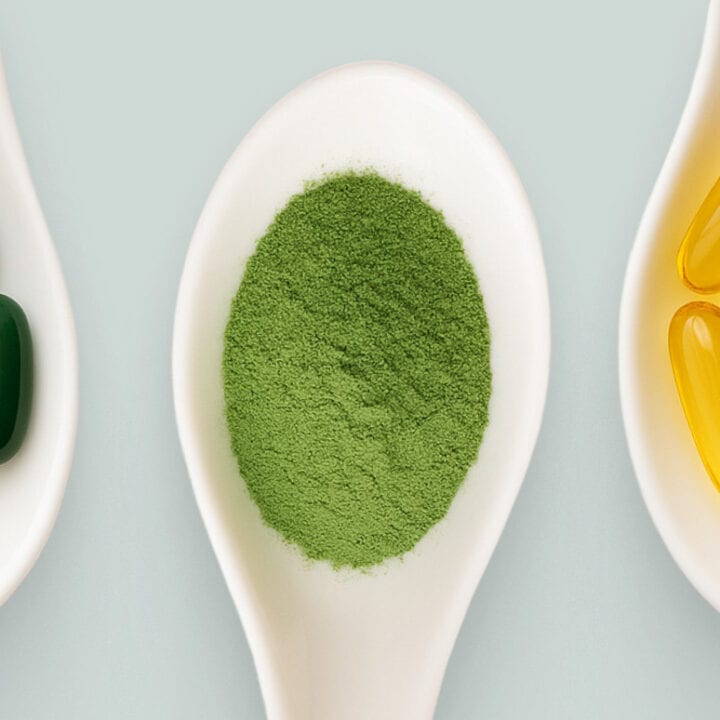
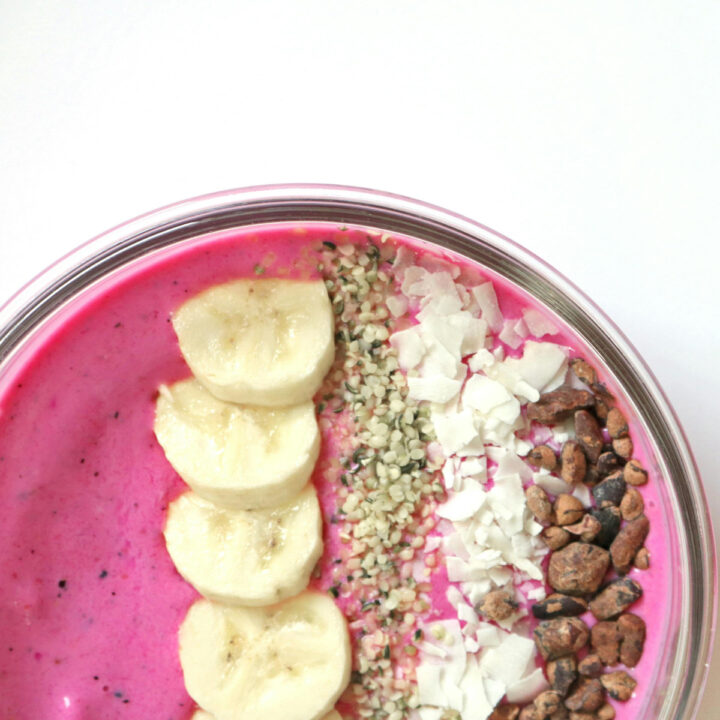
Comments
No Comments